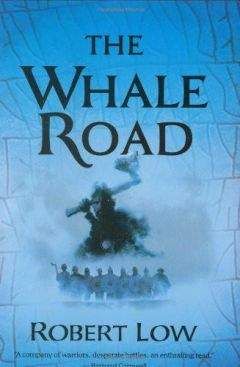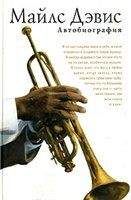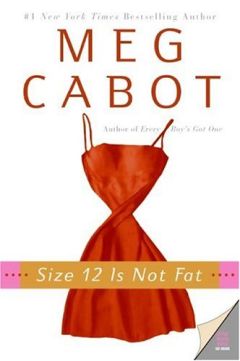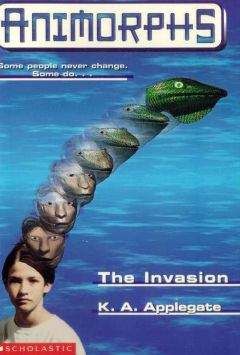Greg Iles - The Devils Punchbowl
I didn't see you, she says. Can I help you?
Darla, my name is Caitlin. I'm a very good friend of Penn Cage.
The girl stares back for several moments, neither breathing nor blinking. Then she starts to back away.
Wait, Caitlin says. Please, wait. I know you gave Penn that note at the Ramada Inn. I know you tried to disguise yourself, but he recognized you. He thought you worked at a restaurant, but I found you anyway.
I used to work at a restaurant, the girl says in a dazed voice. Frankys Pizza. I liked it there, but I kept putting on weight. I had to quit.
Caitlin nods with empathy.
But I don't know nothing about no note, Darla says, twice as loudly as shed spoken before.
Caitlin cant help but smile at this obvious lie.
But you knew exactly what I was referring to when I mentioned the Ramada and Penn Cage.
Darla licks her lips, then looks around as though suspicious someone is watching her.
I was at the Ramada, she says. So were a lot of people. And I did see the mayor there. But I don't know nothin bout no note. I haven't passed notes to men since grade school.
Caitlin takes a step forward and speaks with sisterly intimacy. I'm trying to help Linda Church. Shes in terrible danger, more even than she knows. I know you've been trying to help her, you and your friends. But she needs more help than that.
Fear glitters in Darlas eyes. I told you, I don't know nothin bout any a that. I gotta get back to work. I got customers.
I don't see any customers, Caitlin says gently. But I'll be glad to buy something if youll tell me just a little bit of the truth.
I did, Darla insists.
Have you seen Linda yourself? The reason I'm asking you is because of your eye makeup. I saw you didn't know how to put it
on, and I figured that if Linda was with you, she would have fixed it for you.
Darla looks on the verge of tears. Her neck is splotchy, and her breath is going shallow. I cant talk anymore. Please, go away. Leave me alone.
Caitlin reaches into her purse and hands Darla a card with her cell number on it. I want the same thing you do, Darla. I want Linda to be safe. Please call me later. Think about all this. Youll know its the right thing to do.
Darla accepts the card with a shaking hand, then turns and hurries down the aisle toward a collection of Chinese lawn mowers.
Caitlin knows the girl is lying, but sometimes you have to stop pushing and let the source make her own decision. With a girl as skittish as Darla McRaney, it shouldnt take long.
CHAPTER
40
Car doors close with a disturbing finality in cemeteries. Tim lies under the earth now, a few flowers on top of his coffin, dropped in by family and friends. He wasn't buried on Catholic Hill, but he does lie within sight of it. This wasn't a punishment, but a matter of limited space. Green Astroturf carpet conceals the mound of dirt that the backhoe will use to fill in the grave. The familiar green canopy of McDonoughs funeral home keeps the sun off the few people who remain: Dr. Jessup and his wife, some relations from California, Julia and the baby.
A second knot of people stands several yards away, mostly pallbearers, myself among them. These men I knew as boys flew so far to do their somber duty, and though most of us haven't seen each other much in the past twenty-five years, were as comfortable as brothers who live on separate coasts. Paul Labry stands with us, waiting, as I asked him to do at the cathedral.
After a couple of quiet jokes, well-concealed smiles, and well-meant but empty promises to stay in touch, the guys head for their rented cars. After the short line of vehicles disappears up the lane, I turn to Paul, but find myself facing Julia Jessup. Shes left Tim junior with his grandmother. Her eyes are bloodshot, the skin around them raw and swollen.
Labry takes a step back out of courtesy, but one hard glance from Julia sends him back another twenty feet.
I know I look bad, she says in a cracked voice. I'm not getting much sleep. Tim used to help me with the baby. A lot more than most men do, I think. And Tim juniors not sleeping well at all now.
I'm sorry, Julia.
Are you? Her hollow eyes probe mine. I came over here because I want you to know something. I didn't want Tim doing what he did. The thing that got him killed. But he did it anyway. I think you should know that he did it for his father, and for you.
A wave of heat goes through my face. Me?
She nods with conviction. Tim really had you up on a pedestal. A lot of people do, I think. He never forgot how close you were when you were young, and when you stopped being friends, he blamed himself. He thought hed let you down somehow. You went on to be a big success, and he wound up dealing cards on a casino boat. I told him that was honest work and nothing to be ashamed of, but it didn't help. He was ashamed. And after he found out whatever was really going on with that boat, it just ate at him until he had to do something.
I'm truly sorry, Julia. Tim was a good man, and I wish he hadn't gotten involved with any of that. I wish I hadn't let him.
I just want to know if it did any good, she says. Because my son is going to have to live the rest of his life without a father. Was it worth it, Penn? Did Tim accomplish one goddamned thing by dying?
While I try to find a suitable answer, Julia says, What about
you
? Have you done what you promised you would do?
As I try to recall exactly what I promised Tim that night, his widow turns and walks back to his grave without waiting for an answer.
What was that about? Labry asks, coming up behind me.
Did you hear any of it?
He shakes his head. She made it pretty clear that was a private conversation.
I take deep breath and blow out a long rush of air, trying to flush the guilt from my system. Lets go over there, away from the family.
We walk a little way up the lane, then climb some steps to a hill shaded by cedar trees. Like most of the names in this cemetery, the one engraved on the stones in this plot is familiar to me. A cool but gentle breeze blows over the hill, and the sun shines bright enough to warm the bricks of the wall around the plot. Leaning back against the wall, I regard Paul Labry.
Where most of the Catholics in Natchez are Irish or Italian, Paul is of French descent. By marriage, hes related to the Acadians forced by the Spanish to live near what would become the infamous Morville Plantation. Labry has dark eyes and skin and hes still handsome despite losing some hair and putting on weight. He looks more like an aging poet than the manager of an office-supply business, but I never cease to be amazed by how poorly some people fit the stereotype of their occupation.
Paul, I want to tell you something that I haven't told anyone else.
I thought you wanted to ask me something.
That too. I've decided to step down as mayor.
What?
He looks me from head to toe. Youre not sick, are you?
Tim asked me the same thing the night we met here. No, its not that. My reasons are personal, mostly to do with Annie and Caitlin.
Pauls watching me like a man who still cant believe what hes hearing. Are you guys getting back together? You and Caitlin?
If shell have me.
Are you kidding? You know she loves you.
Not enough to live here with me.
He purses his lips while he mulls this over. Is that it, then? You want to stay in Natchez, but you feel you cant?
No. Its time for me to go. The reason I'm talking to you is that I want you to stand for mayor in the special election after I'm gone.
Labry draws back, his face pale. Are you serious?
It should have been you two years ago. I should never have run.
Oh, thats bullshit.
No, its not. Youre the man for the job, Paul. I think you
should announce on the same day I resign, and I'll throw you my full support.
Labry turns away, looking thoughtfully toward the tent over Tims grave. I used to think I might try it, he says. But I'm forty-four now, and I'm starting to think I don't understand the world anymore. My fathers business is going down, Penn. Wal-Mart and the rest have about killed it. I've tried to save it, but the hole just keeps getting deeper. His cheeks redden in embarrassment. All the old retail places are going down. Hell, we don't have more than a handful of Jewish families left in town, and they were the backbone of the retail economy when we were growing up.
I hoped I wouldn't have to play the next card, but Pauls not giving me any choice. I'm sorry to hear that. Because if you don't run, you know whos going to get the job.
Paul blanches again. Shad Johnson?
Yep.
Christ.
Who knows? Maybe that wouldn't be such a bad thing.
Bullshit. Paul lowers his voice. I was talking to Father Nightingale, from out at Mandamus Baptist? He speaks for a lot of the black community. He doesn't even like Shad being district attorney. Said you cant trust him as far as youd throw him. I'm not sure the blacks would even turn out for him.
They will if youre not in the race. But if youre in it, theyll vote for you. They know where your heart is.
Labry looks away for a while, then turns back to me. Penn, if you cant accomplish the things we dreamed about, what chance do I have?
That's the wrong way to look at it. I aimed too high. I wanted to solve the education problem because thats where salvation lies, but I couldn't do it. I used to blame the whites for that, but theres blame on both sides.
He nods dejectedly. You know what I think the real obstacle is?
Does it even matter? The existing public facilities couldn't absorb the kids from the private schools even if their parents decided to send them.
Oh, hell, thats just a matter of money. If we really brought all those kids into one system, what youd have is a bunch of white kids
who couldn't make the athletic teams and a bunch of black kids who couldn't make their grades. You talk about something nobody wants?
That's
it.
Theres truth in what Labry says, but he knows the reasons run deeper. Paul, if I was going to live up to my principles, I would have moved Annie to the public school on the day I was elected. But I didn't. I was unwilling to risk my childs education, and maybe her safety, unless there were a dozen other white kids in there with her. Its time for someone with more conviction and a different list of priorities to give it a shot. And thats you.
Labrys blushing now. You know, I think when we lost the Toyota plant, we lost the mandate you had after the election. Well eventually get there on education. But peoples first concern is high-paying jobs.
Youll never get the latter without the former. But there are lots of other things to be done. Annexation of county land. Pushing through the eco-preserve on the creek. Keeping the selectmen from covering the bluff with RV parks. Schmoozing people like Hans Necker. Youre twice as good as I am at that stuff. Be honest, Paul. Dont you want the job?
Labry looks down and twists the toe of his shoe into the grass. From what I've seen these past years, being mayors about dealing with a bunch of people who all think they're something special.
Well, aren't they? If anyone still believes that, I figured it was you.
Sure they are. But no more special than anybody else. We get in trouble when we start thinking were better than our neighbor. Or that somebody else is better than the rest of us. But thats what people always do.
Is that how you see me? As a guy who thinks hes better than other people?
Paul laughs softly. That's the funny thing. You
are
better, in a lot of ways. Oh, I'm sure you've got your secrets; everybody does. But knowing you like I do, knowing all you've accomplished in your past, and then seeing you fail in your own eyes
I'm not a politician, Paul. That's why I never ran for DA in Houston. I was a lawyer at heart. Now I'm a novelist, and I think that spoiled me. When you write a book, you have total control of
the universe and everyone in it. When youre mayor of a town, youre lucky if you can control yourself, much less anyone else.
Labry steps onto a low concrete wall and sweeps his hand to take in the whole of the cemetery. Look out there. Jewish Hill, Catholic Hill, Protestants between. Colored Ground. Babyland, where the unwed mothers babies went if they died. We try so hard to stay separate from each other that we even do it in death. Its tribal, man, and its not just the South. Paul turns and points toward the rear of the cemetery. But the truth is over there behind Catholic Hill, in those thick woods. Paupers Field. Theres three thousand bodies back there, just dropped in holes in the ground. In the dark under those trees, theres no separation. The roots are growing down through all of them, just alike.
I'm not sure I see where youre going. But it doesn't sound like youre too interested in being mayor.
Were all equal before God, Labry says. That's what I'm saying. But nobody walking this planet seems to get that. Everybody sins, Penn.
Everybody.
That's the great leveler. Not death.
Sin.
I was hoping for a more definitive answer.
Labry gazes into the forest for a while. Then without warning he springs off the wall and looks up at me with a grin. Hell, yes, I'll do it. I'll be the damnedest mayor this town ever had!
I look back in amazement for a few moments, then we both burst out laughing.
CHAPTER
41
Caitlin hunches low behind the wheel of her car and takes a sip from a can of diet Dr Pepper. Shes parked between two trucks in the lot of the Bargain Barn on Highway 15. She knows Darla was lying. The girl was so flustered that shes bound to panic and leave the store at her first opportunity. Forty minutes have passed since Caitlin left the store, but her cell phone has not rung. Despite Caitlins promises of confidentiality, Darla was too rattled for that. But Caitlin has dealt with enough sources to recognize the signs of panic. This is a lot like fishing, or what she remembers her father trying to teach her of it during the summers she stayed with him. Only out here theres nowhere to pee.




